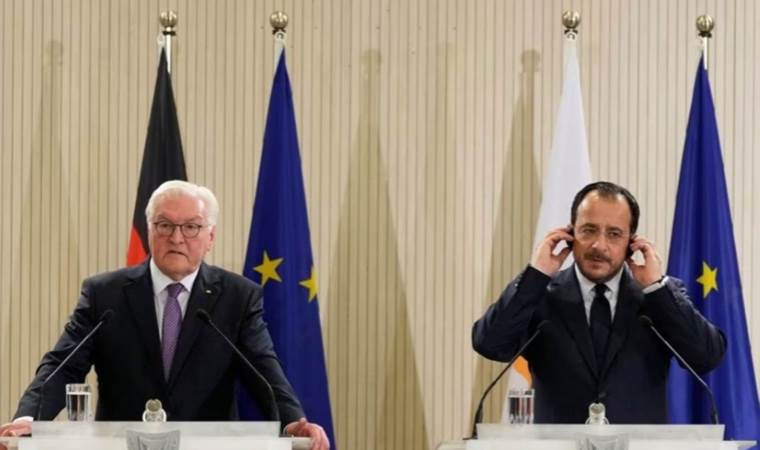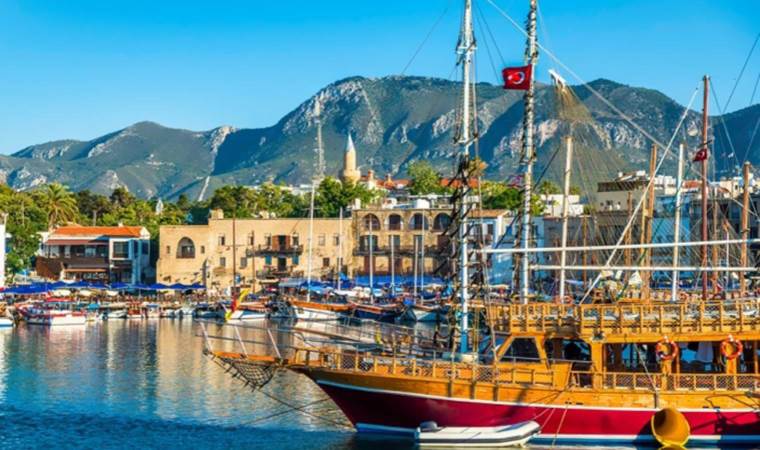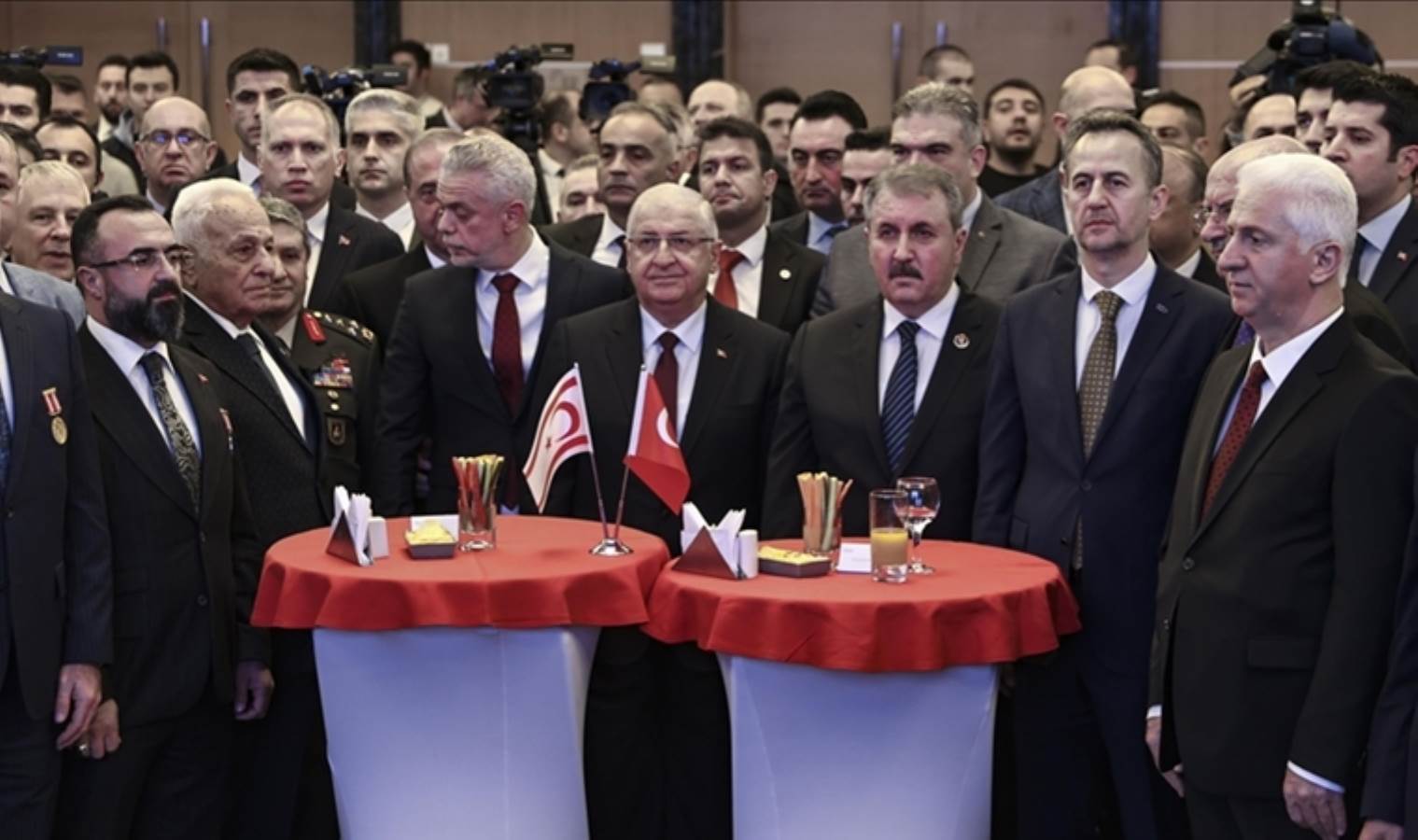50th anniversary of Peace Mission: Northern Cyprus seeks equality
Fifty years have passed since Prime Minister Bülent Ecevit launched the Cyprus Peace Operation on July 20, 1974, to prevent the oppression and persecution of Turkish Cypriots by the Greeks and to establish peace on the island. Evaluating the past 50 years of the operation, TRNC Ambassador to Ankara İsmet Korukoğlu told Cumhuriyet that one must look at history to understand the significance of July 20.

Korukoğlu noted that the Republic of Cyprus, established in 1960, turned into a Greek state by 1963, and from 1963 to 1974, Turkish Cypriots were forced to live in an area constituting 3% of the island. He described these 11 years as very painful for Turkish Cypriots.
Korukoğlu stated, “However, these 11 years also mark the beginning of the Turkish Cypriots’ struggle, which today is crowned with the TRNC, and the steps toward statehood. Turkey intervened using its rights and obligations. If Turkey had not intervened, there would be no Turkish Cypriots on the island today. Turkey’s security in the Eastern Mediterranean would have been compromised. This is essentially a peace operation. As Ecevit said, the safety of both Turkish and Greek Cypriots was protected. The 1974 Peace Operation is crucial for the process leading to the establishment of the TRNC in 1983. July 20 did not occur suddenly. It was a result of the Greek and Greek Cypriot coup attempts.”
'We Would Be No Different from Gaza'
Korukoğlu explained that if the island were annexed by Greece, the Turkish presence would have been eradicated, adding that the Eastern Mediterranean is a security issue for both the TRNC and Turkey. He said, “Looking at the current events in the Middle East, we better understand the significance of Turkey’s effective and active guarantee on the island and the Cyprus Peace Operation. Without Turkey’s intervention, our situation would not be different from Gaza today.”
'A Violation of Human Rights'
Korukoğlu outlined the current demands of the TRNC, stating that while the world recognizes the Greek Cypriot Administration as a state, the TRNC is only recognized as a “community.”
“Our demand is to correct this asymmetry. The TRNC’s sovereign equality and equal international status must be recognized. However, other actions need to be taken. The development rights of Turkish Cypriots are being obstructed. Due to the unjust isolation imposed by the international community, Turkish Cypriot athletes cannot participate in international competitions. Direct flights to our country are not possible. Our political representation is hindered. With such isolation, we face challenges in developing our own economy. This essentially means the right to self-improvement is being blocked, and this is a human rights violation. We expect this unjust isolation to be lifted.”
'Criteria Forgotten'
Commenting on the European Union’s stance of rejecting the Turkish presence in Cyprus, Korukoğlu recalled that after the Annan Plan, which proposed a new partnership on the island and was rejected by the Greek Cypriots in a referendum, the EU announced the lifting of the isolation imposed on the Turks. However, this has not happened to date.
Korukoğlu reminded that admitting the Greek Cypriot side into the EU on May 1, 2004, without a solution on the island meant Brussels violated its own criteria. “If there is a dispute, it is first resolved, and then EU membership is discussed. However, in Cyprus, the opposite was done.”
'Progress Made with Baku'
Commenting on the recognition of the TRNC, Ambassador Korukoğlu noted that significant progress has been made with Azerbaijan in recent years, expressing confidence that the process will improve when the right conditions are met. “We do not want steps taken by Azerbaijan to harm Azerbaijan. We are confident that we will take important steps with several other countries as well,” he said.
Most Read News
-
 EU extends sectoral sanctions on Russia
EU extends sectoral sanctions on Russia
-
 Southern Europe swelters as 2025’s first major heatwave
Southern Europe swelters as 2025’s first major heatwave
-
 At least 8 killed in blast at southern Indian pharma fac
At least 8 killed in blast at southern Indian pharma fac
-
 Irish band voices support for Palestine during Istanbul
Irish band voices support for Palestine during Istanbul
-
 UK lawmakers call on government to 'urgently' create Ukr
UK lawmakers call on government to 'urgently' create Ukr
-
 Iran slams IAEA silence to Israeli-US attacks, demands a
Iran slams IAEA silence to Israeli-US attacks, demands a
-
 Russia regrets Azerbaijani decision to cancel cultural e
Russia regrets Azerbaijani decision to cancel cultural e
-
 Germany ‘deeply concerned’ over deadly Israeli strikes n
Germany ‘deeply concerned’ over deadly Israeli strikes n
-
 UN chief warns of ‘decimated’ aid budgets at development
UN chief warns of ‘decimated’ aid budgets at development
-
 Gaza death toll tops 56,500 as Israel continues genocida
Gaza death toll tops 56,500 as Israel continues genocida













